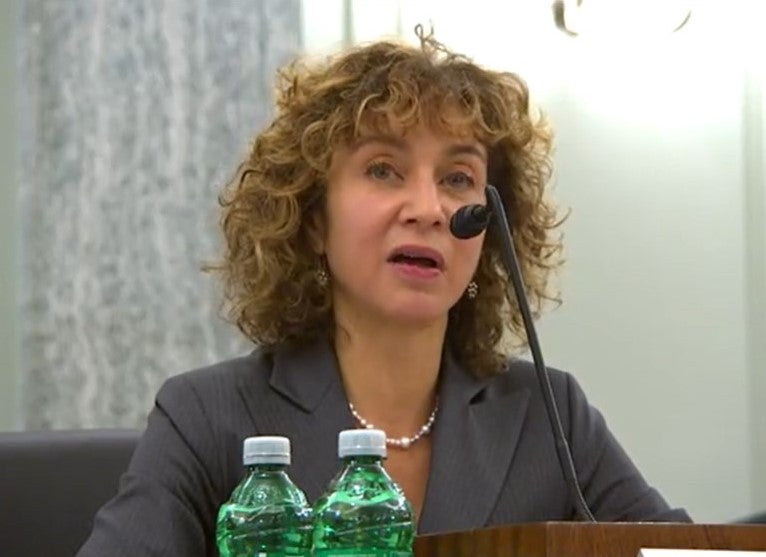The Federal Motor Carrier Safety Administration is in the position — once again — of having to name an acting administrator after another brief stint by a deputy chief opting to leave before being confirmed by the U.S. Senate.
Meera Joshi, who was nominated to be the FMCSA’s seventh administrator by President Joe Biden in January and breezed through her confirmation hearing in September, announced on Monday she would be going back to her home state after being named one of five New York City deputy mayors.
Joshi’s exit means FMCSA will continue to be without a Senate-confirmed administrator since Ray Martinez abruptly left in October 2019. Jim Mullen, Wiley Deck and Joshi have filled in during the intervening 26 months in either deputy or acting roles.
Since Joseph Clapp became the agency’s first administrator in 2001, there have been 11 such non-confirmed leaders of the FMCSA (see chart). That begs the question: Is there something wrong with this job?
“It’s one of the most thankless positions within the department because no matter what you do you’re going to piss off one side or the other,” a U.S. Department of Transportation official, who declined to be identified, told FreightWaves.
| FMCSA Administrator | Year confirmed |
| Joseph Clapp | 2001 |
| Annette Sandberg | 2003 |
| John Hill | 2006 |
| Anne Ferro | 2009 |
| Scott Darling | 2016 |
| Ray Martinez | 2018 |
Source: FreightWaves research.
“[Public safety advocates] say you’re always kowtowing to industry, the trucking industry complains that you’re always throttling them with regulations. When you try to give the industry a little breathing room [e.g., truck driver hours-of-service changes that went into effect in 2020], you get sued by the safety people.”
Unlike other DOT agencies that have a significant safety mandate — the Pipeline and Hazardous Materials Safety Administration (PHMSA) and the FAA, for example — the industry that FMCSA oversees is much more stratified, ranging from a driver with one truck to trucking companies with huge fleets to state departments of transportation.
Martinez, who oversaw the hours of service changes in 2020, cited personal reasons for leaving. Money and politics can play a role as well. Unelected federal administrators by law make less than $200,000 per year, with more lucrative positions found in the private sector. Mullin, who left FMCSA in August 2020, was hired by TuSimple two months later. Deck, who retired from government after the Biden administration took over in January, went to work for Plus in May.

(Photo: U.S. Congress)
Political frustration may have been an even bigger factor for Joshi. U.S. Sen. Rick Scott, R-Fla., acknowledged earlier this month at a Senate hearing sponsored by the Committee on Commerce, Science, and Transportation that he was holding up all DOT and Commerce department nominations until their respective secretaries — Pete Buttigieg and Gina Raimondo — testified at an oversight hearing he requested on the supply chain crisis.
A former DOT secretary challenged the notion that the top job at FMCSA is particularly burdensome.
“I see nothing unique in FMCSA’s safety role, nor do I think that agency wears people out faster than in any other of the modal agencies,” the official, who preferred to be anonymous, told FreightWaves. “FMCSA can be a challenge and there can be a lot of conflict between the trucking industry and the safety community, but I think it’s not unique at DOT.”
Whether or not that’s the case, however, having an administrator who has not cleared the confirmation process — an effective “stamp of approval” from the legislative branch — can be unsettling for the rest of the agency, according to Deck.
“After you’ve gone through the confirmation process and you’re taking that seat as administrator, it generally means you’re going to be there for a while, and it creates that stable base to operate from,” Deck told FreightWaves.
“It’s also great for morale. Otherwise things seem more unsteady. People are thinking, ‘What’s going to happen next? How long is that individual going to stay with us?’ Also, if [career staff] make a decision on a rulemaking and a new confirmed administrator comes in, is there going to be a change in direction?”
And did Deck, who left due to the incoming administration, find leading FMCSA to be a “thankless” job?
Watch: Wiley Deck on autonomous trucking regulations (10/14/21)
“Absolutely not,” Deck said. “I enjoyed my time there — I wish I could have been there longer. I enjoyed working with the staff and with all of our stakeholders. I’d also like to send good wishes to Meera Joshi on her new position. Hopefully we can find some stability for the agency in the coming months.”
Joshi plans to remain in her current role for the next month, DOT said on Monday. Her immediate successor (Jack Van Steenburg, the executive director and chief safety officer, is the agency’s next most senior official) will then likely take on the top job in another “acting” role until a Biden replacement nominee is confirmed.







